How To Become A Data Analyst
The job of a Data Analyst can be defined as exploring ways in which data can be used to answer business questions and solve problems an organisation is facing. Data Analysts are the human factor in translating numbers into easy-to-understand outcomes and suggestions.
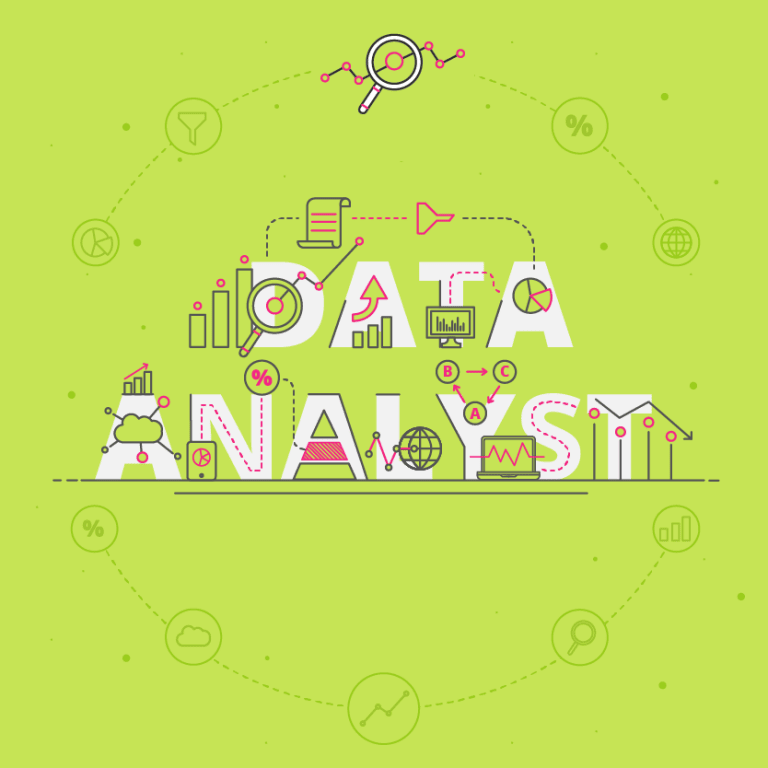
They’re required to collect, process and analyse data for a variety of business concerns ranging from product pricing to employee productivity – anything requiring data to make better business decisions. It’s no surprise in the next five years 59% of organisations plan to increase the number of positions requiring data analysis skills.1
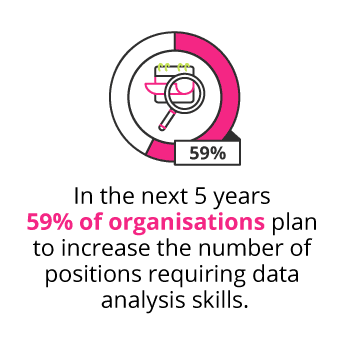
For those who are mathematically and analytically inclined but also maintain a strong sense of curiosity, the position of Data Analyst could be the perfect fit. It requires a logical mind paired with the ability to communicate effectively and concisely with team members who lack an understanding of data.
Take Your Next Step in Becoming a Data Analyst with a Featured Online Master’s in Data Science Program or Business Analytics Certificate

Sponsored Online Master’s in Data Science Program
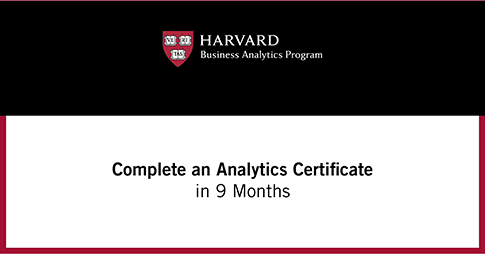
Sponsored Online Business Analytics Certificate
For a Data Analyst to be truly effective in their role, they need a combination of hard and soft skills which allow them to turn raw data into business-focused solutions.
The three most important skills a Data Analyst needs:
- Technical skills: at the very core of data analysis is the ability to interpret numbers and data, organise datasets in programmes like Excel, perform statistical analysis, and confidently navigate databases and SQL.
- Communication skills: it’s not enough for a Data Analyst to explore their data – they also need to be able to ensure they’re asking the right questions about the data they’re interpreting, and be adept at presenting their findings in a way allowing other team members to absorb and implement solutions.
- Attention to detail: the art of data analysis is very precise. An invaluable Data Analyst is able to examine small details leading to bigger solutions, including granular interpretation of outcomes and using results to hypothesise about future trends and outcomes.
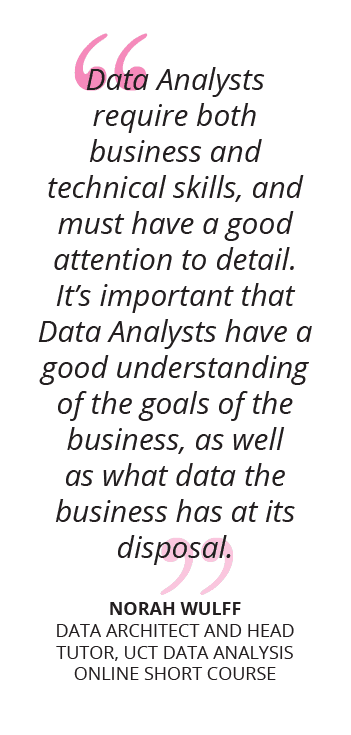
What are the key responsibilities of a Data Analyst?
The vast majority of a Data Analyst’s day is spent with raw data, understanding how best it can be used to inform business decisions, but there’s also a focus on communication and understanding what it is your organisation needs.
Here are the three key areas the Data Analyst job description entails on a day-to-day basis:
| Data Analysis |
|
| Business Systems Analysis |
|
| Information Technology Management |
|
Related content: Why Is Data Analysis Important In Business?

What is the career path of a Data Analyst?
The need for skilled Data Analysts exists in almost every sector so it is unsurprising the predicted growth rate for the following seven years is 19%. 2 This growth is supported by the fact data analysis is considered to be the most important skill for any professional to learn in the next four years.3
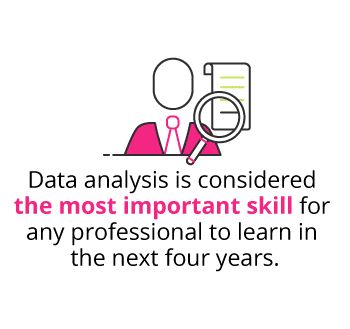
Data analysis as a profession is moving away from simply extracting information from databases, as automation is making this process more effective. The shift is revealing the need for Data Analysts to focus more on data science, working with complex modeling and predictive techniques to establish useful insights directly impacting the decisions of the business.4
The need for Data Analysts has been established but it’s also important to consider which industries Data Analysts would contribute to the most.
Industries with top job opportunities for Data Analysts:
- Finance and investments: From entry-level to managerial positions, financial institutions have a varied and extensive need for Data Analysts. It also lends itself to the opportunity to focus on niche areas of analysis. Focusing attention on areas such as investment analysis opens up opportunities for expert positions in the financial sector.5
- Technology: Unsurprisingly, tech companies are big employers of Data Analysts. In large part, this is due to the changing nature of the industry – as the field evolves and develops there is pressure to predict new trends before competitors do. As a result, Data Analysts are relied on to establish new challenges and new market opportunities.
- Marketing: Marketing relies heavily on the expertise of Data Analysts in both quantitative and qualitative market analysis with 72% of marketers considering data analysis skills vital to thriving in today’s data-centric marketing landscape.6 Marketing departments need to understand the success of campaign efforts and they do this by turning to Data Analysts. Data Analysts can also be called on to look into market research for the launch of new products and services.7
What is the potential salary for a Data Analyst?
The demand for competent Data Analysts is mirrored by the high salaries on offer for senior positions. Data Analysts who hope to increase their earning potential need to consider specialising in a niche area of analysis or focusing their attention on managerial positions involving increased leadership responsibilities.
Click on a country to see what you can expect to get paid as a Data Analyst in either South Africa, the United Kingdom or the United States of America:
| RSA | |
| Entry-Level | R114,666 |
| Mid-Career | R224,374 |
| 15 Years Experience | R417,771 |
| UK | |
| Entry-Level | £18,327 |
| Mid-Career | £25,511 |
| 15 Years Experience | £38,040 |
| USA | |
| Entry-Level | $40,492 |
| Mid-Career | $57,261 |
| 15 Years Experience | $81,191 |
What are the education and training requirements for a Data Analyst?
The nature of the work of a Data Analyst means it’s almost always a requirement you have tertiary education in a relevant discipline. Along with the right degree, there are other ways to set yourself apart in the industry.
How to stand out as a Data Analyst?
- Earn a Bachelor’s degree: It’s a requirement for the majority of entry-level data analysis jobs to have a degree in a field with a focus on statistics or analytics. Relevant disciplines include:
-
- Mathematics
- Computer Science
- Information Management or Business Information Systems
- Finance
- Economics
- Statistics
- Get relevant work experience: As with most professions, work experience is an invaluable thing to have on your side. Fortunately, in the field of data analysis, there are a number of internship and graduate programmes available to those who are still studying.8 This gives entry-level Data Analysts an advantage once they leave their studies because they’ll have developed real-world analysis skills that will set them apart.
- Take short courses: The field of data analysis is dependent on understanding changing trends and technologies. As a result, the most effective Data Analyst is the one who continues to stay ahead of the curve. One surefire way of ensuring you stay relevant in data analysis is to commit yourself to lifelong learning.
Which skills do you need next?
Download a course prospectus to find out how one of these online short courses can help you become a Data Analyst.
1 SHRM 2 Learn 3 BlueVenn 4 Master’s in Data Science 5 Investopedia
6 BlueVenn 7 Marketing-Schools 8 Prospects





